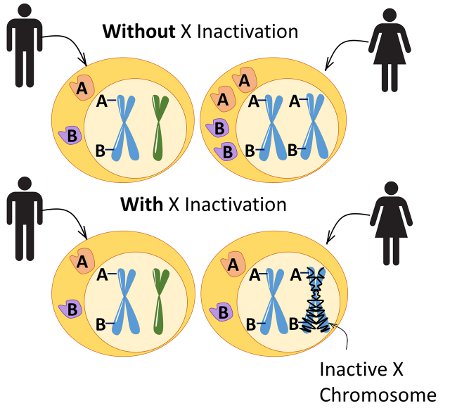Can Girls Have Duchenne?
PPMD is often asked the question: can girls have Duchenne? This is a complex question to answer. We know girls can have symptoms similar to Duchenne, and can also require a similar level of care as people living with Duchenne. However, technically girls do not have the diagnosis of Duchenne unless both of their X-chromosomes carry the mutation on the dystrophin gene, which is extremely rare. More often, young girls who show symptoms of Duchenne are actually “manifesting carriers” of Duchenne.
PPMD understands that there are a number of young females carriers in our Duchenne community who deserve the same opportunities to receive optimal care and inclusion in research studies, just like boys with Duchenne. We have chosen to use the term females with dystrophinopathy to include girls in the “spectrum” of dystrophinopathies that include Duchenne and Becker. This way, PPMD can raise awareness of the health risks and better inform healthcare professionals, researchers, and family members. We are optimistic these discussions among experts in the field will continue to drive improvements in the diagnosis, care, and awareness of females with dystrophinopathy
WHAT SYMPTOMS CAN GIRLS HAVE?
Young females with dystrophinopathy can manifest a wide variety of symptoms that also vary in severity. Symptoms may include:
- Muscle weakness
- Fatigue or low endurance
- Impaired balance and frequent falls
- Muscle pain or cramps
- Cognitive and behavioral issues (ADHD, learning disabilities, etc.)
- Cardiac changes (fibrosis or scarring seen on cardiac MRI, changes in function seen on echo)
Why do some young girls have symptoms?
The dystrophin gene is located on the X-chromosome. Because boys only have only one X-chromosome (and one Y-chromosome), they will have Duchenne if there is a mutation in the dystrophin gene. However, girls have TWO X-chromosomes, which means they have TWO dystrophin genes. Being a carrier of Duchenne means they “carry” the mutation of the dystrophin gene on ONE of their X-chromosomes.
Typically, female carriers of Duchenne do not have symptoms because their “healthy” dystrophin gene takes over, and their body “turns off” their affected dystrophin gene. However, for reasons we do not yet understand, sometimes the “healthy” dystrophin gene may not work efficiently or at all and the body opts to use the affected dystrophin gene. This leads to females having similar symptoms (skeletal, cardiac, cognitive) as those with Duchenne and Becker, commonly termed “manifesting carriers.”
The process of X-chromosomes “turning off” is known as X-inactivation. It is common practice for neuromuscular specialists to order X-inactivation testing to try and understand why symptoms are happening in female carriers. However, we have learned X-inactivation testing is not accurate because X-inactivation can vary among muscle groups, causing symptoms such as one leg being weaker than the other. Dr. Nelson, a geneticist from UCLA, suggests that clinical symptoms, rather than X-linked inactivation testing, are currently the most appropriate way to assess whether a female is, or will be, a manifesting carrier.

MY DAUGHTER DOES NOT HAVE SYMPTOMS, BUT SHOULD SHE STILL HAVE GENETIC TESTING?
Early detection of the genetic mutation may lead to earlier and better treatment in symptomatic girls. However, testing female first-relatives of people living with Duchenne who are unable to legally consent remains a family decision. PPMD advocates for better education about the potential health risks of being a carrier of Duchenne. In addition, we suggest neuromuscular providers should ask parents about any potential symptoms seen in their young daughters. Should symptoms be identified, then a follow-up with CK testing and genetic testing is recommended.
CARE FOR YOUNG FEMALES WITH DYSTROPHINOPATHY
Girls with any symptoms mentioned above should be seen every 6 months at a comprehensive neuromuscular clinic, preferably a Certified Duchenne Care Center that will have all the care and services needed. Similar to males, females should be treated based on symptom severity. Those with cognitive or behavioral issues should be referred for further evaluation and follow up.
CAN GIRLS PARTICIPATE IN CLINICAL TRIALs?
Currently, females are not included in clinical trials or studies, including those investigating natural history. The ImagingDMD team at the University of Florida is expanding their protocol to include females with early skeletal muscle weakness, which will initiate a natural history study of young females with dystrophinopathy that are referred through PPMD’s Certified Duchenne Care Centers. To be notified of potential research opportunities for young females with dystrophinopathy, be sure to enroll in The Duchenne Registry.





